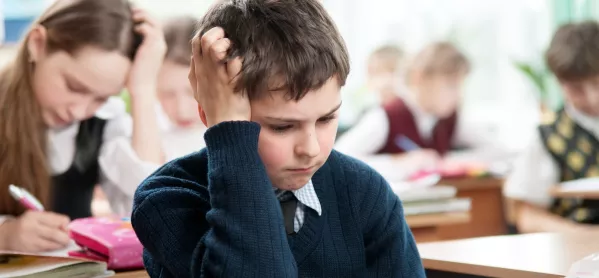- Home
- School reopenings: 9 wellbeing issues to consider
School reopenings: 9 wellbeing issues to consider

While our daily lives and routines have been significantly changed by the coronavirus pandemic, we must not ignore or underplay the emotional toll and pressures on our mental health that the past two months will have caused, too.
As educators, we must be prepared to support our staff, pupils and their families with their mental health as we prepare to reopen our schools and academies in the coming weeks.
Here are nine fundamentals we must be aware of:
1. We must not pretend everything is ‘normal’
Children and adults will have been changed by their experiences of Covid-19. It is important to acknowledge this and understand that an adjustment period is going to be needed for the “new normal”.
However much we wish for normality, for many of us, this may be an impossibility.
It is important to acknowledge this and to let people have time to share their experiences.
2. What will our curricula look like?
We cannot expect staff and pupils to launch straight back into the curriculum as it was when we were asked to close our schools.
Alongside the recovery of lost knowledge, focus must also be given to the process of recovery from trauma, anxiety and loss.
Our curricula must recognise our children’s recent experiences and support them to re-establish and learn new ways of living and learning.
3. We may be disturbing ‘a safe place’
For those children who have remained in our schools and academies since lockdown began, many will see their academy as their safe place.
As others return, they may see this as a form of intrusion.
Re-establishing relationships and routines will be key as they provide safety, predictability and help with anxiety co-regulation.
4. Many children may have experienced relational poverty
Many children will return to school with high levels of personal anxiety, heightened by the anxieties being felt by the adults around them.
Some will have also experienced relational poverty, a lack of meaningful connections with others vital for emotional wellbeing, and this will have been amplified by the lockdown.
Our children will require support that focuses on grounding and calming, and simple things like a smile, giving them time and asking questions will have a powerful effect.
5. Motivation may be high but energy will be low
Many staff have been working in our physical schools and academies since lockdown began, over holiday periods including bank holidays, as well as being virtual teachers.
Their general wellbeing will inevitably have been impacted, which may affect their ability to lead, manage and respond to change when we do reopen.
A slower restart to school life will enable us to build resilience in the long term. Staff and pupils need time to adjust and settle back in, and we must focus on re-establishing relationships and routines.
It might even be helpful to think of our pupils as new starters.
6. Addressing loss and bereavement
Bereavement and loss need to be recognised and talked about.
We must not forget that loss can occur in many ways, like the loss of freedom and the loss of social relationships.
Where pupils do not return to school for reasons such as parents choosing to continue with homeschooling, this needs to be made clear as rumours and speculation will only cause further anxiety.
7. There’s no such thing as overcommunication
During this period of uncertainty, knowing everything about our controls and measures will help reduce feelings of anxiety.
What will the first day look like? How will the school building be different? How will school lunches take place?
Being open to answering questions where we can, but also being honest when we don’t know the answers is also important to help maintain trust and confidence.
8. What have we learned about ourselves?
Many of us will have experienced post-traumatic growth. Examples of this include a better appreciation of the small things or improved relationships.
What have we learned about ways to connect with others and teaching and learning? Most importantly, how can we harness this learning?
9. Putting it all into practice
As we prepare to reopen our schools and academies, a focus on relationships and recovery will be crucial.
Never has it been more important to put into practice what we as a sector have preached for so long about the mental health of all the people we serve.
Emma Martin is an educational psychologist employed full-time by E-ACT multi-academy trust
Keep reading for just £1 per month
You've reached your limit of free articles this month. Subscribe for £1 per month for three months and get:
- Unlimited access to all Tes magazine content
- Exclusive subscriber-only stories
- Award-winning email newsletters